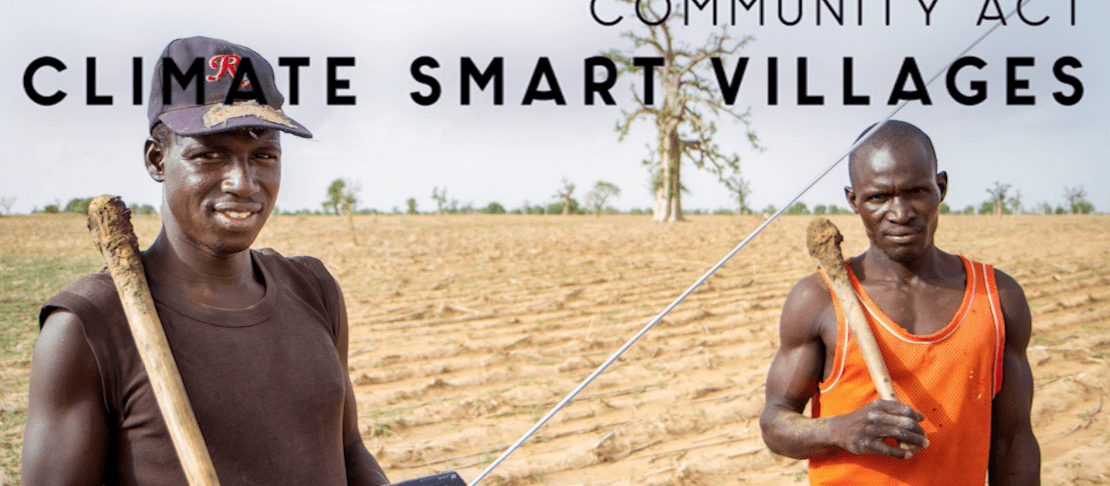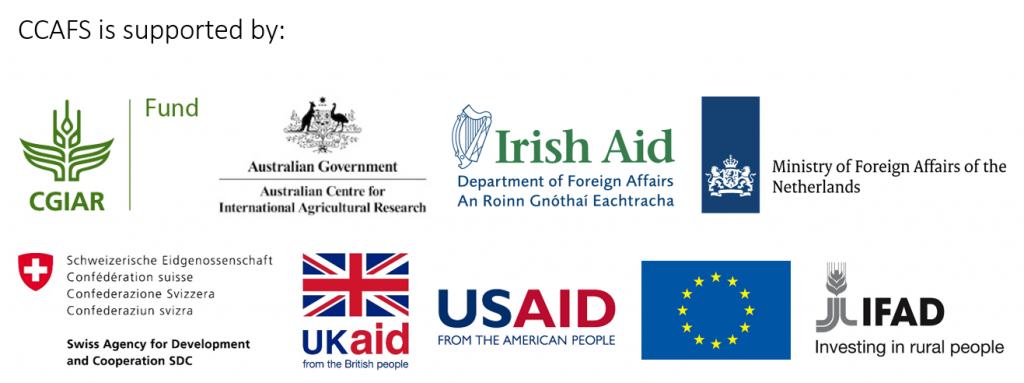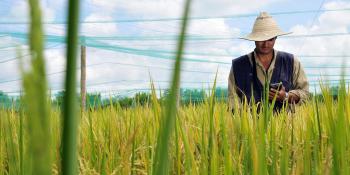CCAFS' Climate-Smart Villages nominated for the Billion Acts of Peace Hero Awards

CCAFS Climate-Smart Village approach nominated for the Billion Acts of Peace Hero Awards from more than 10 million Acts of Peace worldwide by PeaceJam.
p.p1 {margin: 0.0px 0.0px 0.0px 0.0px; font: 11.0px Helvetica}
Billion Acts of Peace is an international global citizens' movement and initiative created by the PeaceJam Foundation and Google, among many others. The Hero Award is a prestigious prize recognizing projects contributing to make the world a better place, bringing together more than one million people to celebrate individuals and organizations committed to tackling the most important problems our planet is facing. The CGIAR Research Program on Climate Change, Agriculture and Food Security (CCAFS) West Africa program has been nominated in the category of Best Community Act for its effort in implementing Climate-Smart Villages in Burkina Faso, Ghana, Mali, Niger and Senegal.
VOTE HERE
to support CCAFS and the Climate-Smart Village approach.
For one month, the CCAFS Climate-Smart Village approach and 11 other nominees in different categories are being highlighted on the Billion Acts Hero Award website and social media channels, giving millions of people the opportunity to learn about the Acts of Peace and vote for their favorites. In addition to public voting, a board comprised of 14 Nobel Peace Prize winners will rank each Act to determine the winners.
This year, six of the projects will be awarded and then honored at the Hero Awards ceremony in Monte Carlo in June. Representatives will receive their Award from Betty Williams, a 1976 Nobel Peace Laureate.
About the Climate-Smart Village Approach
Climate-Smart Villages (CSV) is an Agricultural Research for Development (AR4D) approach. It is a means of performing agricultural research for development that tests technological and institutional options for dealing with climatic variability and climate change in agriculture using participatory methods. It aims to scale up and out appropriate options and draw out lessons for policymakers, from local to global level. Interventions in the CSV sites are aligned with local knowledge and linked to development plans.
The CSV approach has been designed to scale up climate-smart agriculture (CSA) in the context of climate change. It seeks to fill knowledge gaps and stimulate scaling of CSA.
As an AR4D approach, CSA seeks to achieve three objectives:
- Sustainably increasing agricultural productivity to support equitable increases in incomes, food security, and development;
- Adapting and building resilience to climate change from the farm to national levels; and
- Reducing or removing greenhouse gas emissions where possible.
CSV implements CSA as a solution to transform and reorient agricultural systems to support food security under the new realities of climate change.
Read more:
- Brochure: Climate-Smart Villages, An AR4D approach to scale up climate-smart agriculture
- Brochure: West Africa Climate-Smart Villages AR4D sites: 2016 Inventory
- Project Description: What is a Climate-Smart Village?
- Blog: Dery Christopher: How the Climate-Smart Village approach changed my life
- Blog: How the Climate-Smart Village approach impacts farmers' livelihoods in Ghana
p.p1 {margin: 0.0px 0.0px 0.0px 0.0px; font: 9.5px Cambria} table.t1 {border-collapse: collapse} td.td1 {padding: 0.0px 5.0px 0.0px 5.0px}
Dansira Dembélé is communications officer at CCAFS West Africa based at the West and Central regional center of ICRISAT



